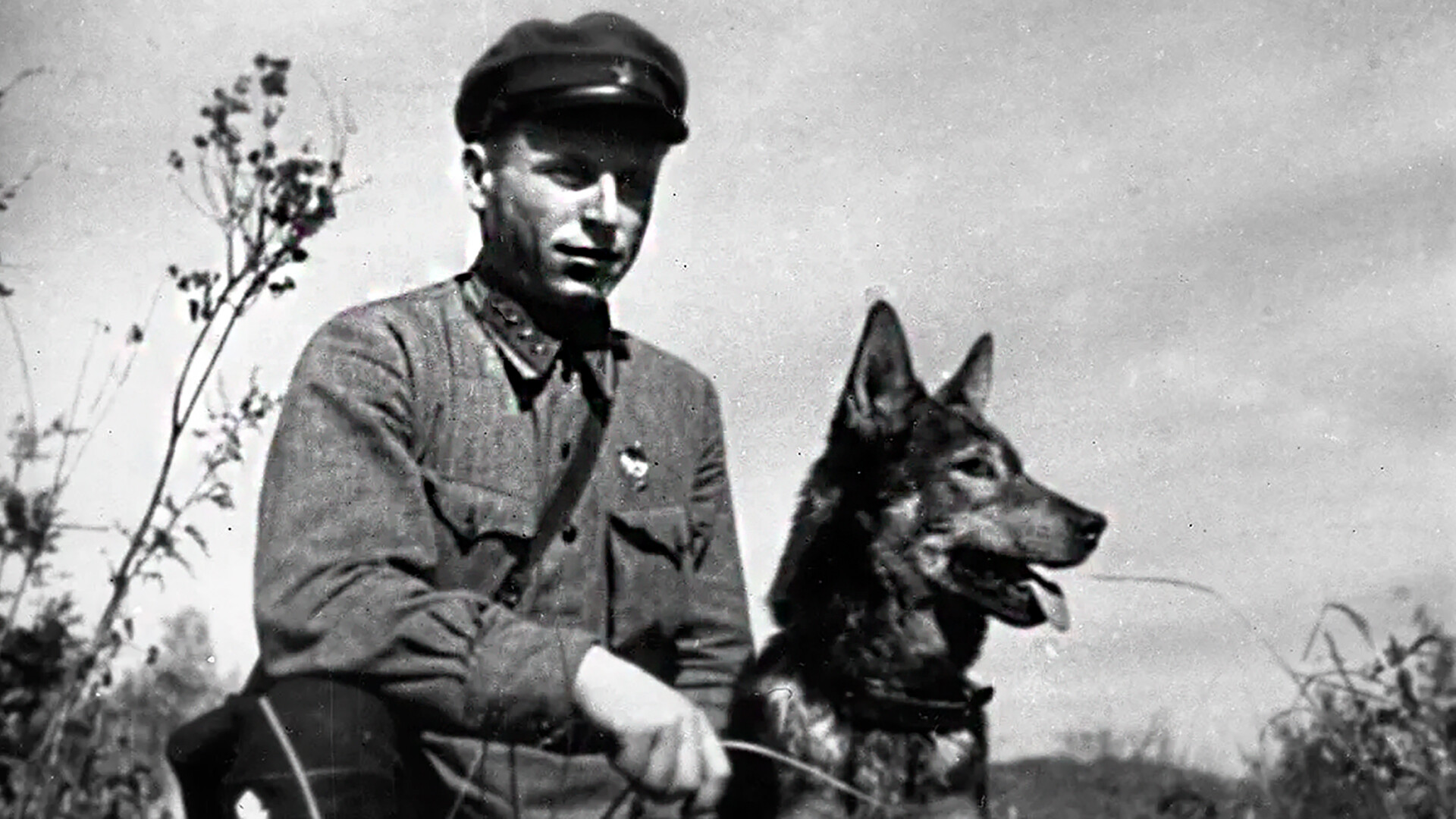
Nikita Karatsupa and his dog Indus (Ingus).
FSB Border Guard Museum of the Primorye RegionA total of 338 state border intruders detained and 129 spies and saboteurs eliminated - such were the impressive results achieved by Nikita Fyodovich Karatsupa, the most effective Soviet border guard, during his 10 years of service. So, how did he manage to become the country’s number one border guard?
Karatsupa joined the border guard troops in 1932. A native of southeastern Ukraine, he was sent to guard the state border in the Far East. Nikita Fyodorovich was so diligent in performing his duties that, within a short space of time, the capable serviceman was sent to the local school for junior dog training officers.
During his training, Karatsupa strove to be the best in everything. He tenaciously worked on his powers of endurance and, as a result, could cover distances of many kilometers, without falling behind his dog by a single stride.
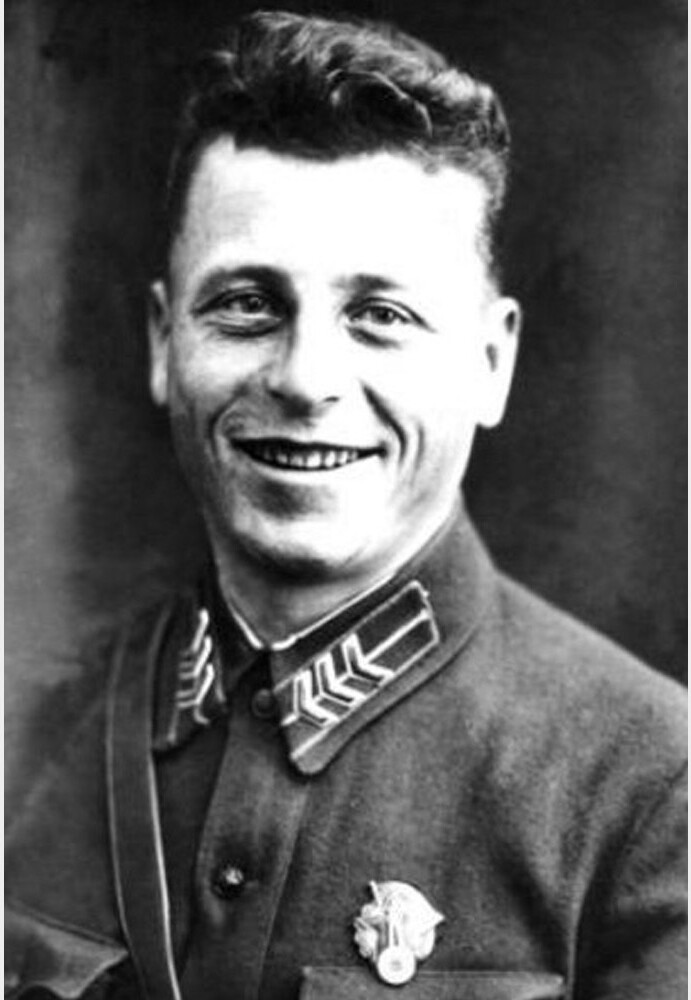
He learned to perfection the art of “reading” the tracks of people and animals (as well as of people mimicking animal tracks). He used them not just to identify the number of intruders, but also to detect what they were carrying, what speed they were moving at and even what they might have looked like.
In addition, Karatsupa used every opportunity to study and memorize smells. By his own admission, he committed 250 different smells to memory, which, when he didn’t have his dog with him, helped him to identify the type of contraband that was being carried or even detect an intruder hiding in the woods.
“I would be talking to someone and simultaneously sniffing them,” Nikita Fyodorovich recalled in his memoirs, ‘Notes of a Tracker’. “If the person I was talking to had a tarry smell, it meant he had greased the wheels of his cart. I would ask: ‘How are the wheels - no longer squeaking after you greased them?’ And he would look at me in amazement: How did I know all this?”
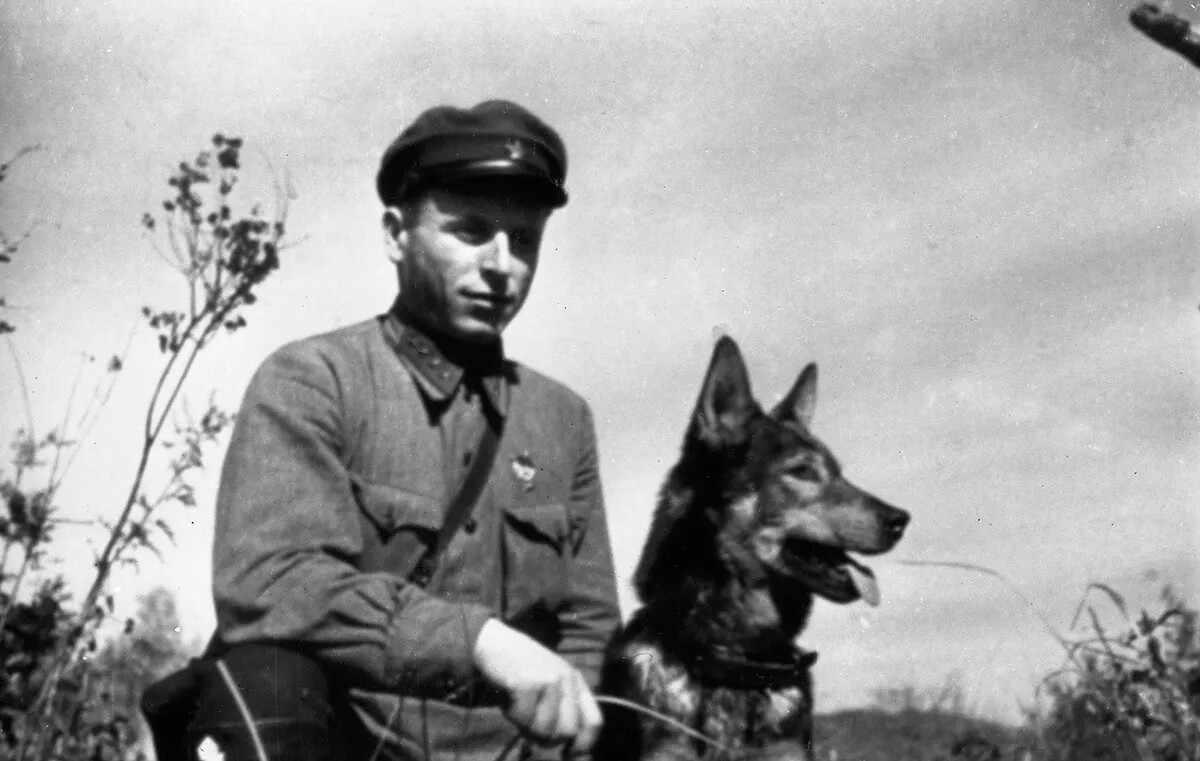
Nikita Karatsupa and his dog Indus (Ingus).
FSB Border Guard Museum of the Primorye RegionKaratsupa’s lot was to serve in a far from easy region at a difficult time. In 1932, the Japanese Empire had occupied the northeastern part of China bordering the Soviet Union, where the puppet state of Manchukuo was set up.
The Japanese constantly probed the Soviet border, sending spies and saboteurs into Soviet territory. A considerable proportion of them were former members of the White Guard who had been forced to settle in Manchuria after their defeat in the Civil War.
Since it was extremely difficult to distinguish such a well-trained agent from a local resident, the border guards had to be particularly alert to any small detail. For instance, Nikita Fyodorovich once uncovered a group of saboteurs intent on blowing up a bridge, who were posing as anglers. Karatsupa did not like the way they baited their hooks with maggots.
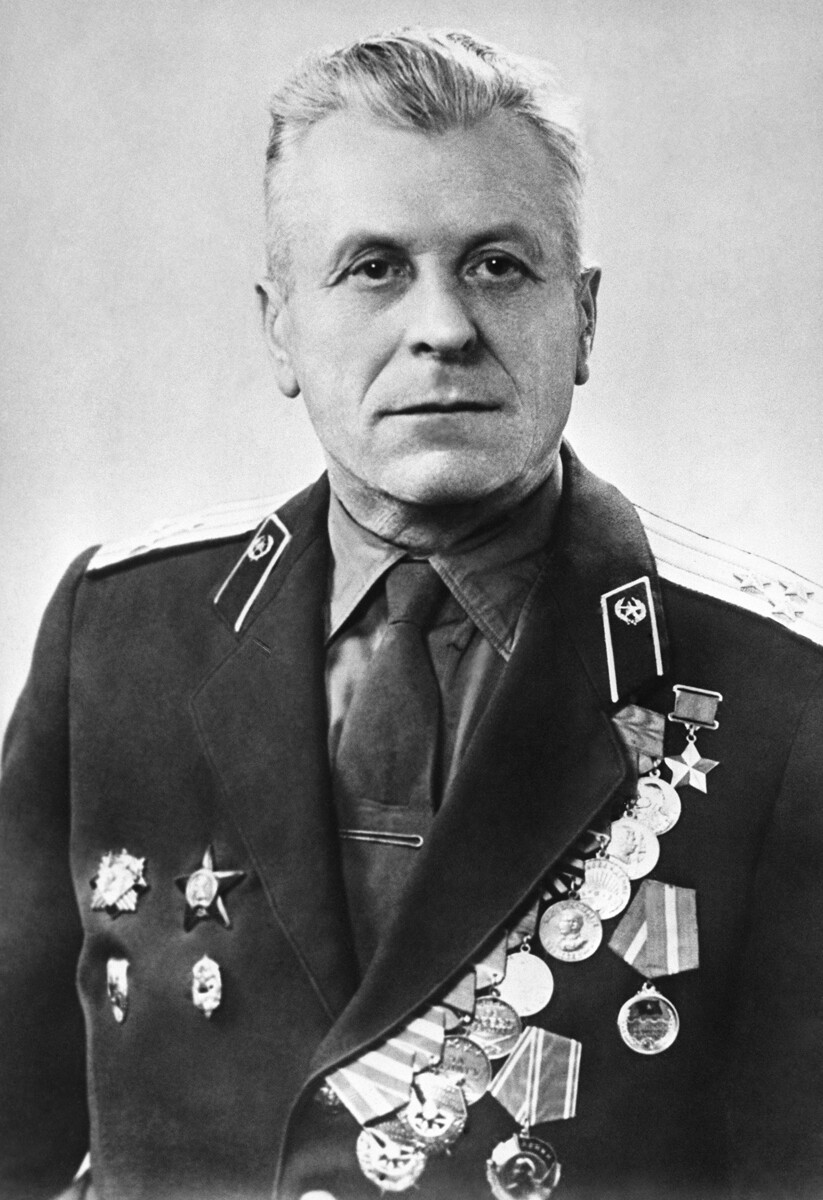
Nikita Karatsupa in 1967.
TASS“A horse, a dog, a rifle and a Mauser - that is all that Karatsupa seems to have had at his disposal in those far-off years,” is how Soviet journalist Yevgeny Ryabchikov described Karatsupa's work. “Neither helicopters nor all-terrain vehicles nor an extensive communications network nor radio facilities nor night vision equipment nor detection systems - nothing existed then of the variety of the latest technical equipment available to border guards today.”
Nikita Fyodorovich’s faithful assistant was his dog ‘Indus’ (when Karatsupa’s fame spread across the whole of the Soviet Union, the dog’s name was changed to ‘Ingus’ so as not to sour relations with India). The four-legged friend came to the aid of his master on more than one occasion.
For instance, Karatsupa described one encounter in which he had to confront three intruders single-handedly along with Ingus. “Seeing his master in trouble, he leapt into the middle of the fight, biting and tearing at the bandits who had piled onto me. In their vicious frenzy, the latter seemed not to feel any pain. Then a knife flashed in the hand of one of them. ‘Well, that’s it - I’m done for!’ I thought to myself. And, at that moment, the knife flew off to one side, because Ingus had managed to seize the bandit’s wrist and then, jumping onto my adversary’s shoulders, latched onto his neck. I seized the moment to feel in the grass for my Mauser and fired at point-blank range at one of the intruders. The other two fled into the bushes.”
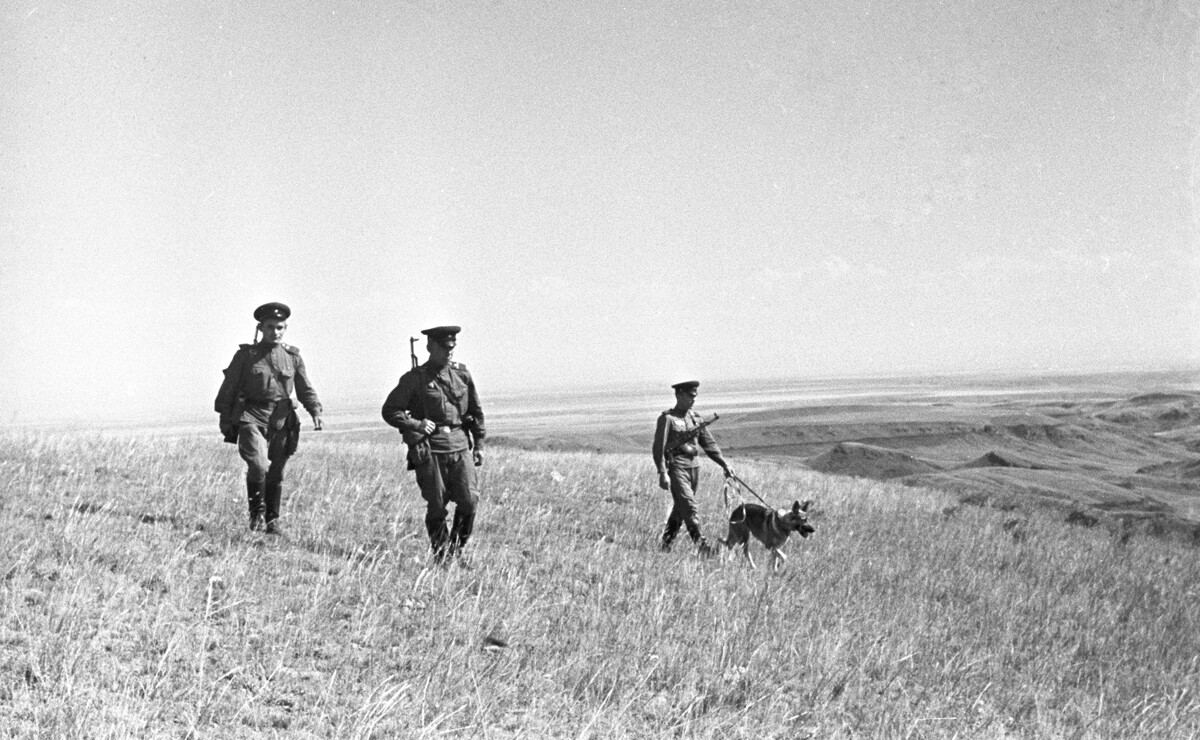
Soviet border guards, 1966.
Y. Grabilin/SputnikIn reality, Nikita Karatsupa had five dogs by the name of ‘Ingus’. They all died in confrontations with border intruders.
In 1944, Nikita Fyodorovich was first transferred to Byelorussia to take part in the reinstatement of the state border and then sent for staff work in the Caucasus. In 1957-1961, he was on secondment to North Vietnam, where he imparted the benefit of his experience to his foreign counterparts.
Subsequently retiring from active service, Hero of the Soviet Union Karatsupa worked at the Central Museum of Border Guard Troops (today, the Central Border Museum of the FSB of Russia) and wrote works on cynology, memoirs and stories for children. He died in Moscow in 1994 at the age of 84.
Schools, libraries, river boats and also border posts in Vietnam and India (and, from 1995, in Russia, too) were named after the celebrated border guard. Movies were made and books written about him, which inspired thousands of Soviet children to go and serve in the border guard troops.
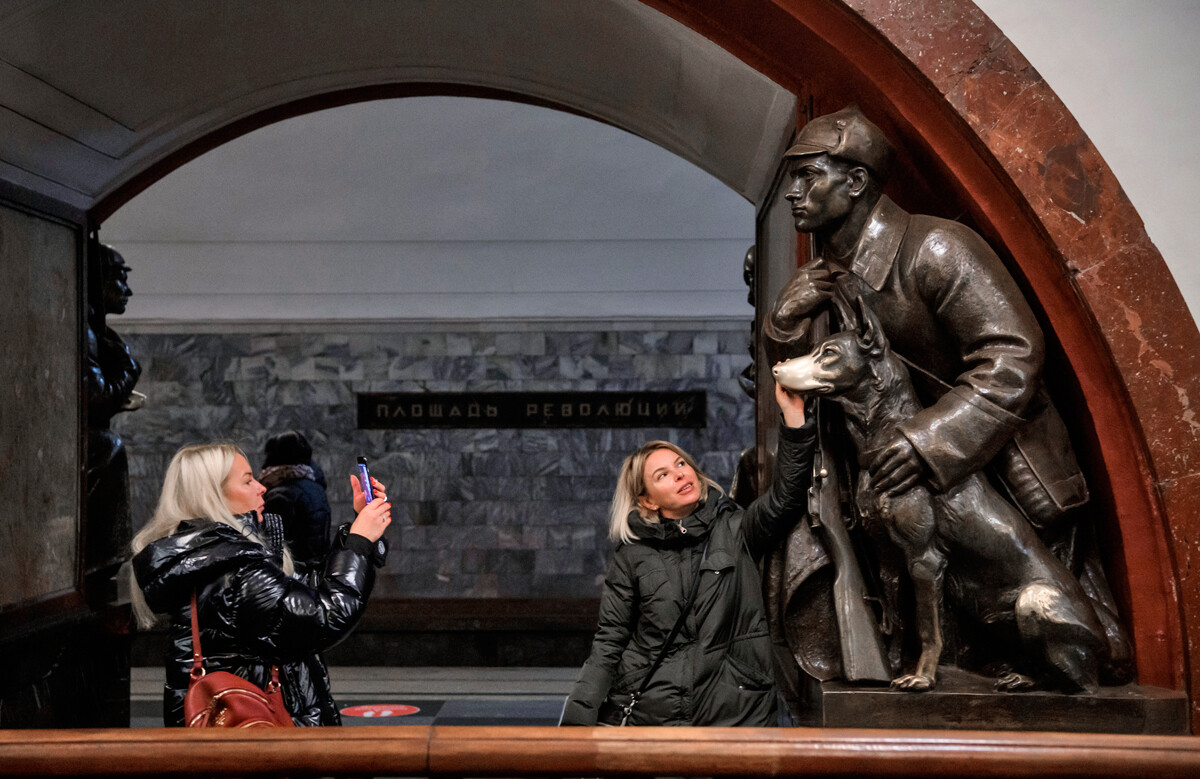
A sculpture of a border guard with a dog at Ploshchad Revolyutsii (Revolution Square) metro station in Moscow.
Ilya Pitalev/SputnikThere is a story that the sculpture of a border guard installed at the Ploshchad Revolyutsii (Revolution Square) Metro station in Moscow in 1938 was modeled after Nikita Karatsupa. It is a curious fact that the nose of the seated bronze dog next to him is highly polished and shines like gold. Muscovites believe that if they rub it and make a wish, the wish is bound to come true.
If using any of Russia Beyond's content, partly or in full, always provide an active hyperlink to the original material.
Subscribe
to our newsletter!
Get the week's best stories straight to your inbox